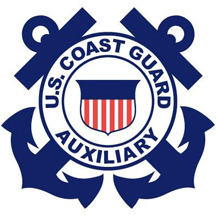Boating safety tips for the Labor Day Weekend from the U.S. Coast Guard Auxiliary
 Before you and your family get out on the water this year, grab a life jacket and “Wear It!” Nearly 85 percent of those who drown while boating were not wearing a life jacket.
Before you and your family get out on the water this year, grab a life jacket and “Wear It!” Nearly 85 percent of those who drown while boating were not wearing a life jacket.
Wearing a life jacket is one of the most effective and simple life-saving strategies for safe recreational boating. Boaters are required to have a U.S. Coast Guard-approved life jacket on board for every passenger on their vessel, a life jacket being worn is mandatory for children 12 years old and under.
Today’s life jackets are available in a wide variety of shapes, colors, and sizes. They are comfortable, lightweight, and perfect for any boating activity.
The most important thing is this: remember to grab a life jacket and “Wear It!”
The effects of alcohol can be even more hazardous on the water than on land. Boating Under the Influence, or BUI, affects judgment, vision, balance and coordination. These impairments can increase the risk of being involved in a boating accident – for both passengers and boat operators. Alcohol is a contributing factor in about a third of all recreational boating fatalities.
It is illegal to operate any boat or watercraft while under the influence of alcohol or drugs in every state. Penalties can include fines, suspension or revocation of your drivers license and even jail time. Every boater needs to understand the risks of boating under the influence of alcohol or drugs.
Recently, there was well publicized incident involving lightning at a NASCAR race in the Poconos. Thunderstorms and lightning can be a mariner’s worst nightmare. They can develop quickly and create dangerous wind and wave conditions. Thunderstorms can bring shifting and gusty winds, lightning, waterspouts, and torrential downpours which can turn a day’s pleasure into a nightmare of distress.
There are no specific warnings or advisories for lightning but all thunderstorms produce lightning. A lightning strike to a vessel can be catastrophic, especially if it results in a fire or loss of electronics. If your boat has a cabin, then stay inside and avoid touching metal or electrical devices. If your boat doesn’t have a cabin, stay as low as you can in the boat.
Boaters should use extra caution when thunderstorm conditions exist and have a plan of escape. Mariners are especially vulnerable as they may unable to reach port quickly. It is therefore strongly recommended you do not venture out if thunderstorms are a possibility. If you do venture out and recognize thunderstorms nearby, head to port or safe shelter as quickly as possible. Ultimately, boating safety begins ashore with planning and training. Keep in mind that thunderstorms are usually brief so waiting it out is better than riding it out.
The Coast Guard Auxiliary offers Boating Safely Classes on a regular basis. Check out “http://a09204.uscgaux.info/”






